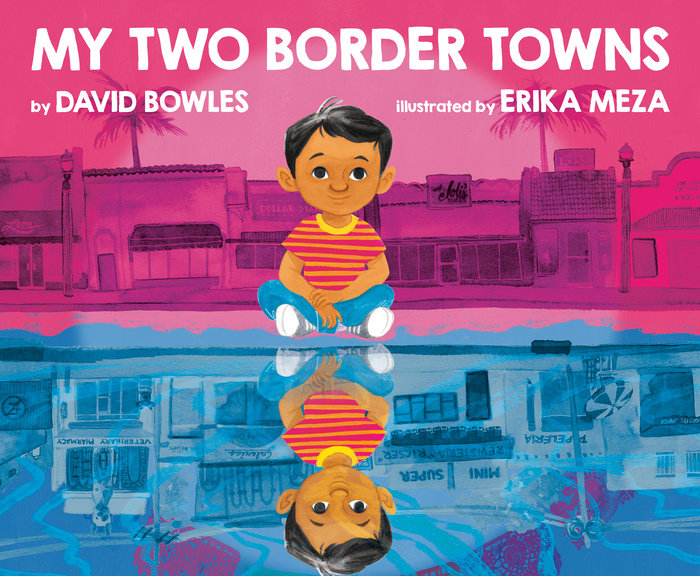Gr 1-3–A father and his sleepy son awaken for an errand they have done together many times. They are going to the “Other Side,” or “Otro Lado.” They will cross into Mexico and visit relatives, get medication, shop: “Before I know it, we reach the broad river, a watery serpent that glints with the dawn. Dad reminds me: Coahuiltecans once lived here, before all this was Mexico—both riverbanks. Now we’re two countries. We pay to cross. ‘Morning,’ says the U.S. customs guard, taking Dad’s cash with a sleepy frown.” The boy notes the parallels in the other town to his home: “This town’s a twin of the one where I live, with Spanish spoken everywhere just the same, but English mostly missing till it pops up like grains of sugar on a chili pepper.” The mood is jubilant, for the boy has friends on both sides of the border, but the journey has a weight to it, that something is not right. Will they be inspected? Will there be trouble? Spanish and English phrases run like separate currents of the same stream, understandable in context. And then, they must buy and parcel out gifts for their friends, the gente: “A line of people camp along the edge, entire families from the Caribbean and Central America. Refugees, Dad calls them. Stuck between two countries. The U.S. says there’s no room, and Mexico says it can hardly look after its own gente.” Young readers may need more information than the spare text allows, for the narration hews to the young boy’s perspective.
VERDICT A wistful and generous book, this doesn’t place blame but carries a message of what borders do to families and livelihoods. It will rightly invite conversation, and is a necessary inclusion in most collections.





Be the first reader to comment.
Comment Policy:
Comment should not be empty !!!